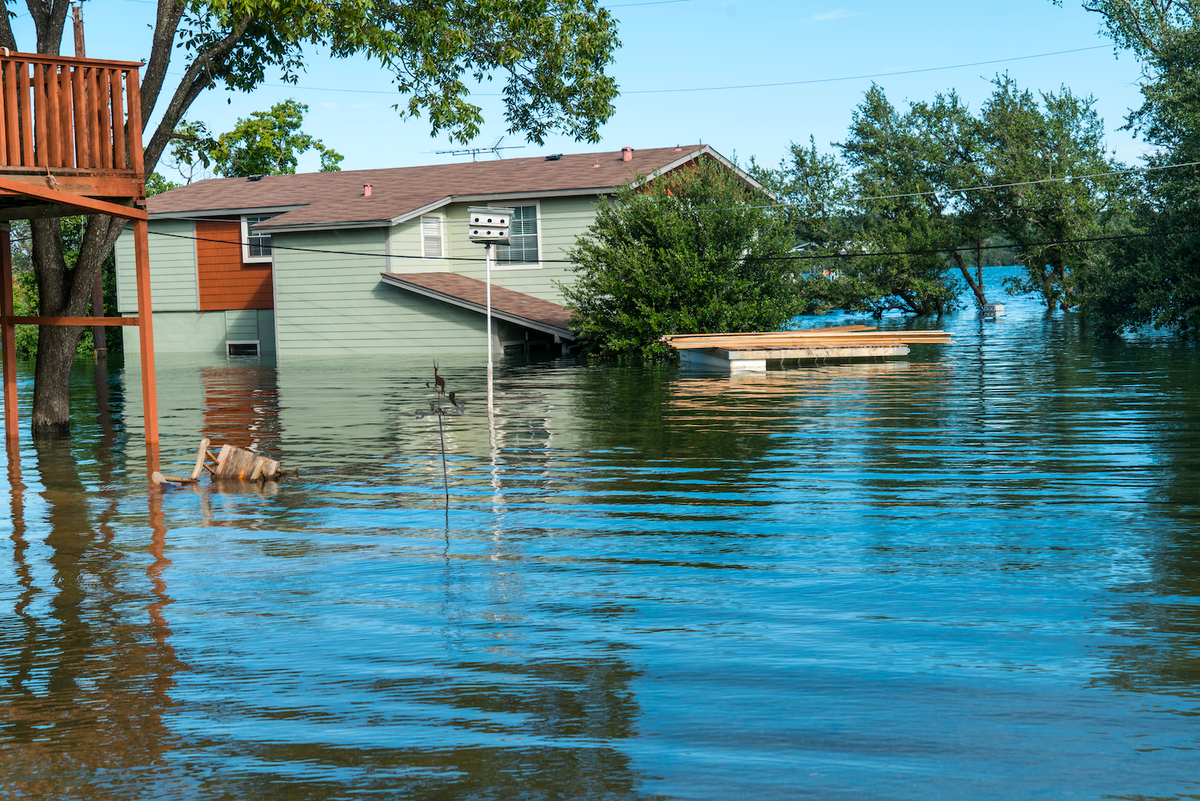The homeowners' insurance industry is built on risk models that help companies decide which homes to insure and which ones to walk away from. Forecasting how much they might pay in claims allows insurers to cover those costs. The more accurate an insurance company’s predictions are, the more likely it is for the company to be profitable.
Unfortunately, climate-related risks, such as rising seas, more frequent and powerful hurricanes, and worsening droughts, have made the old forecasting models nearly obsolete. And when insurance companies aren’t sure what the risks are, they take steps to protect themselves. This often means leaving areas most exposed to climate-related risks.
Kin is different because we're built to tackle the climate crisis head-on. How? By integrating weather modeling into our tech infrastructure, we get ultra-granular exposure measurement that enables us to serve high-exposure markets.
In non-insurance speak? We look at a lot more (and a lot better) data so homeowners in places like Florida and Louisiana pay less for essential coverage.
Why traditional insurance companies aren’t ready for climate change
Traditionally, insurance companies are built on outdated and inflexible technology. This makes it difficult – even impossible – for them to respond quickly to new information and external changes. Most also rely on just a few details to figure out how risky a home is to insure, and much of the information they get comes directly from the person applying for coverage. Their answers to some key questions are often guesses at best.
But perhaps the biggest problem for traditional insurance providers is that they think they can outrun climate change. Put simply, climate change is a global problem, and there won't be anywhere to run in 10 years. Still, legacy insurers are responding by tightening their underwriting guidelines, and the few consumers who fit those guidelines may find themselves priced out of coverage.
The data insurers need to improve their ability to insure homes in high-risk areas is available. And it's time to adapt.
How climate change increases homeowner risk
Whether it causes rising oceans, more wildfires, or increased tornado activity, climate change will impact both your home and homeowners insurance. These are some key changes to anticipate:
-
More risk. The average Florida home is six feet above sea level with many at three feet. Under normal conditions, many Florida communities are already at risk for flooding because they are low to the ground and because of poor drainage systems.
-
Increased home insurance premiums. Insurers price insurance policies based on known risks. The closer someone lives to the coast or forested area (such as in states like Florida or Louisiana), the more expensive insurance becomes because the risk of loss is higher.
-
Fewer coverage options. More than 1.2 million California homes face moderate or high risk of wildfire damage. Many insurance companies are responding to increased wildfire risk by refusing to cover homes in “wildfire zones.”
-
Declining home values. Beach properties could be in jeopardy, too. In California, experts predict a loss of $11 billion in property values if sea waters rise just a foot. Mortgage companies could potentially stop writing loans in the area and prices could plummet – and that's without a hurricane ever hitting the area in the past.
The impact of climate change on Florida homeowners insurance
If you want an example of how climate change is affecting home insurance, Florida is a good place to start.
Right now, Floridians have a hard time finding affordable homeowners insurance. Insurance companies have been paying out large claim settlements for catastrophic storms for years, but climate change has upped the price tag, causing insurers to either raise premiums or opt out of the Sunshine State altogether.
As homeowners in many catastrophe-prone areas, having insurance now doesn’t mean you won’t be looking for new coverage down the road. An insurance company may choose not to renew coverage when your policy expires. With more homes exposed to natural disasters due to climate change, more insurance providers are nonrenewing homeowners policies to better protect their bottom line while still fulfilling their obligations to their customers.
How does Kin Insurance respond to climate change?
While it's true most homes will likely feel the effect of climate change, not every home will be impacted the same way. Everything from the building materials to the foundation type to the terrain it's built on can impact a home's ability to resist major damage.
That’s why we retrieve reliable data from a variety of public sources in addition to the information you provide. Once we’ve collected this data, we use advanced technology to analyze it thoroughly. This allows us to get more accurate readings of how much money a home should be paying for insurance – even in regions that are repeatedly bombarded by hostile weather. The end result is affordable home insurance for more people.
Customer care during disasters & claims
Claims can be particularly tricky for legacy insurance companies because of the influx of losses during a catastrophic event. Overloaded, already slow systems mean long wait times for customers to even file claims. Long processing times often leave customers wondering if they’ll ever see their damaged homes repaired.
Our solution is to create systems that interact with customers directly during a crisis. First, we text customers who are in harm’s way with resources to help them prepare. Then we send a post-storm text to find out if they’re safe and to get the information we need if they’ve suffered any damage, including pictures that can help us get a claim started for them.
What the climate emergency means for the insurance industry
As the recent climate change report from the Intergovernmental Panel on Climate Change (IPCC) says, the climate emergency is here and it’s already impacting our lives. As climate change intensifies, it will continue to impact home insurance. Premiums will likely keep rising and quality coverage will be harder to get.
However, that’s only true if insurance companies can’t adjust to changing times. At Kin, we know better data and direct-to-consumer distribution are key to handling the new normals that climate change brings. We’re not only better able to assess risk, but we can also help our customers best mitigate it.
What homeowners can do to prepare for climate change
You know climate change isn't going anywhere, but you don't want your home to be a sitting duck. You're not alone. Here are some ways every homeowner can start planning:
-
Buy the right homeowners insurance. Make sure you are covered for floods, wildfires, earthquakes, and hurricanes. Not every insurance policy covers every peril, so do your due diligence to get the right coverage. Hurricane insurance comes standard with all Kin policies; flood insurance can be added to policies in Florida and Louisiana.
-
Evaluate your home’s surrounding landscape. If you live near open spaces, make sure you clear brush regularly and maintain defensible space. Some counties require a minimum of 30 feet of clearance. A no-brush barrier of 100 feet provides more protection from wildfires.
-
Check out virtual reality programs. These walk you through changes in the topography of your community to determine what mitigation systems may help (e.g., sea walls, raised homes, or better drainage systems).
-
Consider migrating inland. If you plan on moving to a coastal region like Florida, consider property farther inland and at a higher elevation.
-
Get involved. Speak up about rising sea levels at your town halls or city councils. Ask city officials to take measures to fortify beaches, improve city sea walls, and improve drainage systems throughout the area.
5 ways to fortify your home for climate change disasters
Improving your home's resilience to climate change reduces the chance and severity of major damage (and subsequent claims). These are five ways to prepare your home:
-
Elevate and anchor equipment and systems in flood zones. Water heaters, gas tanks, and air conditioning units should be above your property’s flood level and anchored to prevent movement. Move all sockets, switches, and circuit breakers to higher levels. It's smart to keep sockets at least one foot above an anticipated flood level.
-
Modify water valves. Install backflow valves both inside and outside all pipes that lead into the house. This helps prevent water backup from city sewers and plumbing from overtaking the home’s internal pipe system.
-
Assess property drainage. Find the natural drainage pattern of your property. Update landscaping and downspouts that have pooling problems and make sure all water will flow away from the house rather than toward it.
-
Retrofit your home based on its risks. Flood retrofitting often means raising the home or installing foundation vents. Earthquake retrofitting reinforces the walls and overall structural integrity of your home.
-
Do regular home maintenance. Clear gutters, drains, and downspouts to improve drainage and mitigate flooding. Clear debris on and around the property and build a wildfire barrier if you are close to open space.


